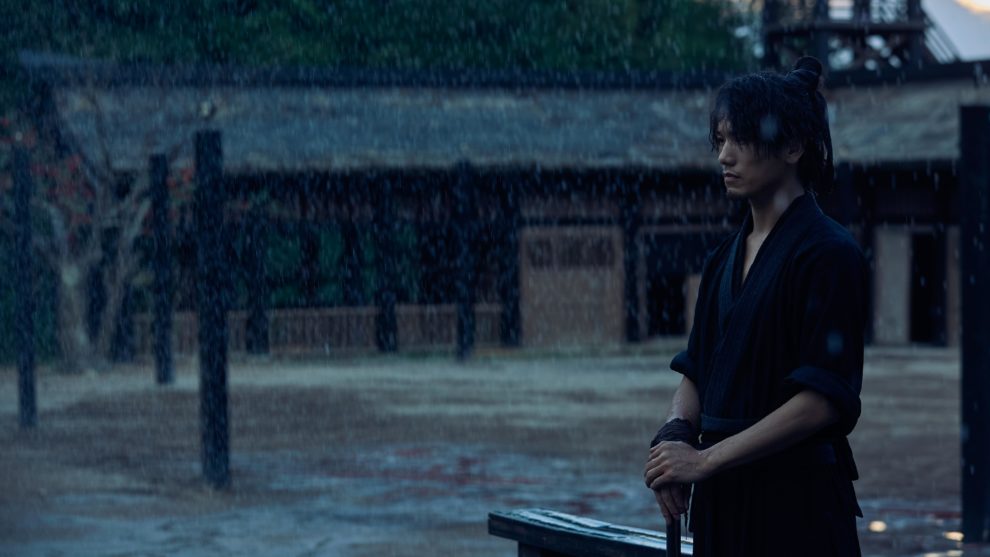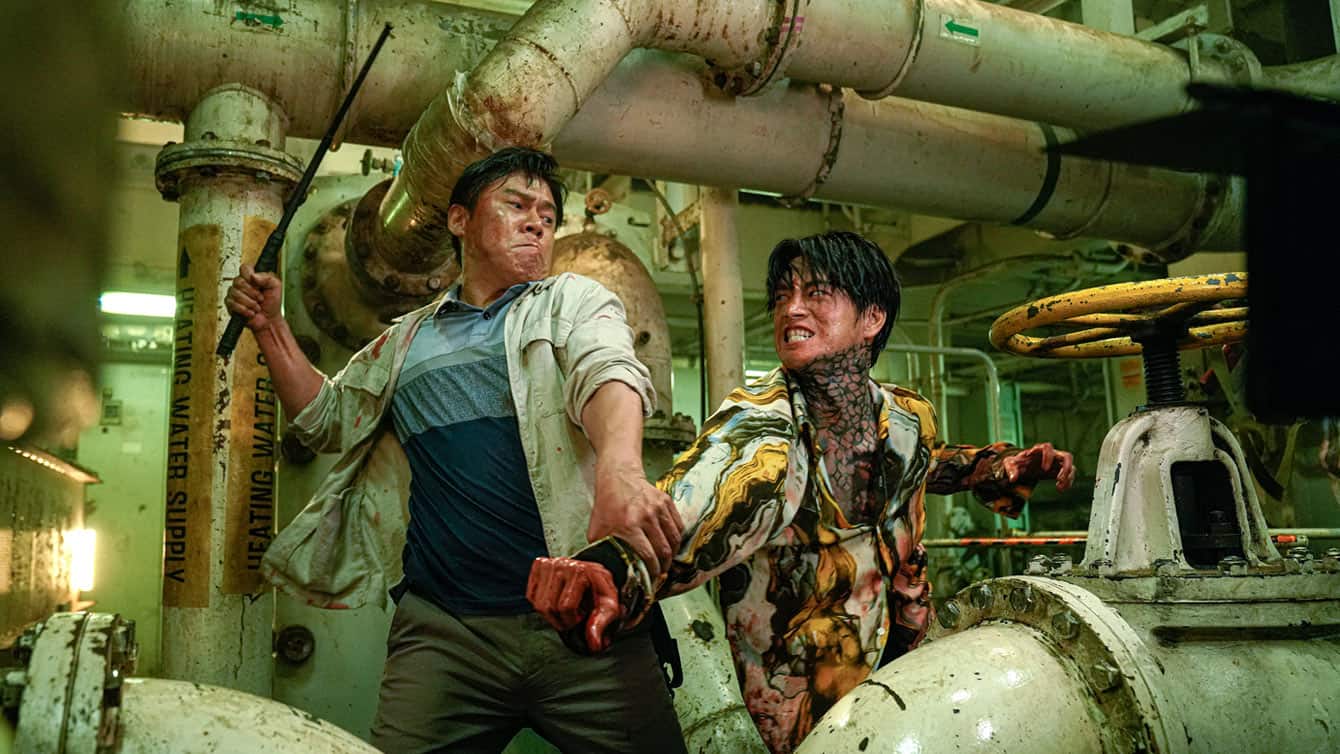“Wild Swords” is not your usual wuxia. For starters, it is an independent production (Feng Xiaogang is credited as producer) that fulfilled its budget through crowdfunding, and not a blockbuster in the style of “Shadow” or the older “Hero”. Furthermore, its aesthetics linger somewhere between Zhang Yimou‘s masterpieces and Hou Hsiao-hsen‘s “The Assassin“, while Li Yunbo also seems to have loaned elements from the anime “Shigurui” and from “Rashomon” regarding the different version of the events. Let us see how this amalgam worked out.
“Wild Swords” is screening at San Diego Asian Film Festival

The rather labyrinthal case revolves around the Nameless Sect, a renowned syndicate of assassins, whose members are considered to have been butchered by the rival Tang-men Sect, with the exception of the latest pupil, Chang Weiran, who is nowhere to be found. Ten years later, and as the story actually begins, Guo, a thief, has just been arrested by the group of Wang Yidao, under the order of an unnamed mysterious client. Guo seems to have something to do with the battle of the two clans, and things get more complicated when, upon the rest of the group in a tavern, they stumble upon Bai Xiaotian, a member of the Nameless Sect, and a bit later upon Tang Wuque, a member of the Tang-men. As the different characters narrate completely different versions about the end of the Nameless Sect, an intricate web of lies, deceits, but most of all, murder and violence entangles everyone.
Li Yunbo directs a narrative, which, as usually in wuxia films, is quite complex, to the point of confusing and occasionally bordering on the nonsensical. However, Li manages to keep it from becoming so, by highlighting the fact that some people are lying about what really happened and by eventually revealing the truth about who is who, and the actual events. Furthermore, the “Shigurui” inspired tale of rivalry of two radically different disciples works quite well, with the same applying to the overall sense of disorientation about the truth the narrative cultivates.
Where the movie truly thrives though, is on the action scenes and the production values. The combination of movements that are occasionally in slow motion and other times frantic as dictated by the music is impressive, with the number of battles in the film satisfying even the more demanding viewer. The lack of a significant budget did not allow for superhuman acrobatics and intricate wirework, but the martial arts coordinators proved here that intricacy can also derive from the attention to detail.
The mix of location scouting, set design, and cinematography is also excellent, resulting in a number of scenes and images of extreme beauty, as the filmmakers exploited fully the rural setting most of the film takes place in, witht he scenes in the woods, the rivers and the mountains being quite memorable.
As is usually the case in wuxia film, the acting is placed in the background, although Xiaochen Zhang highlights Guo Changsheng's playful nature, as he is also the main source of humor in the movie, while Yongliang Sui's terribly deep voice as Bai Xiaotian and the overall sinister essence he emits will definitely stay on mind.
“Wild Swords” does not reinvigorate the genre, nor does it reach the extremely high standards of the masterpieces of the category. However, it is a more than worthy effort, visually impressive and definitely accomplished regarding the action element. Not much more one could ask from a wuxia.















